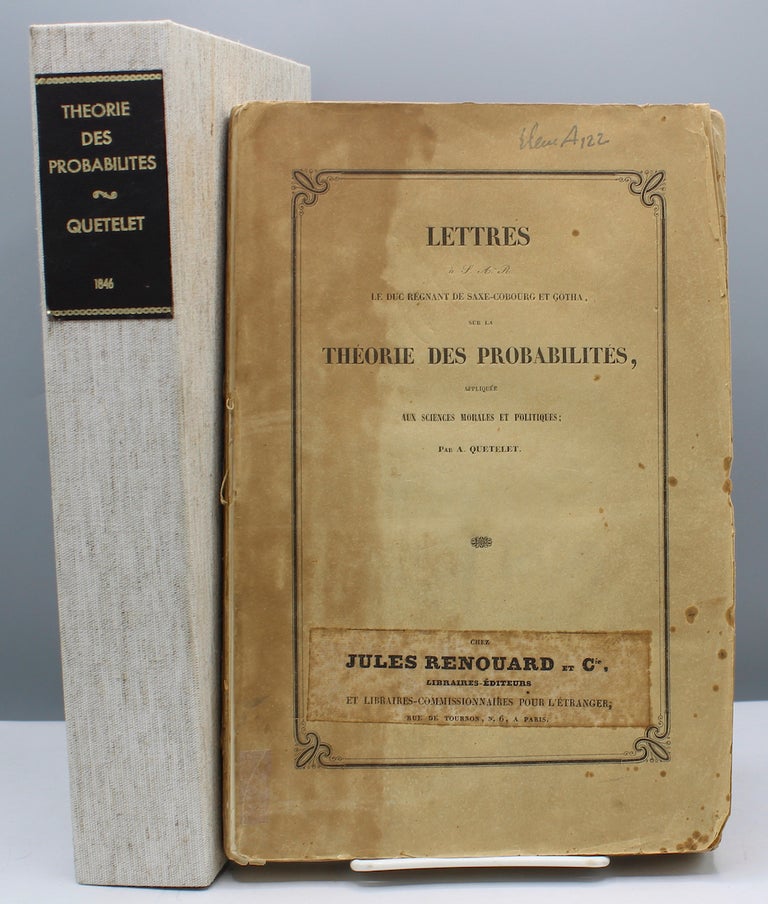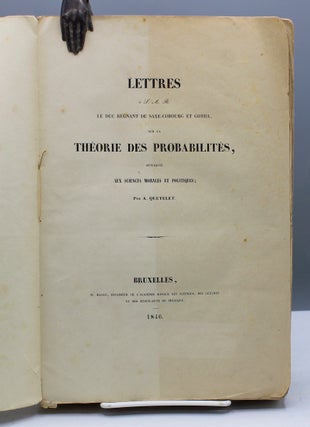Lettres à Son Altesse Royale le Duc regnant de Saxe-Coburg et Gotha sur la théorie des probabilités, appliquée aux science morales et politiques.
Brussels: M. Haney, 1846. First edition of "Quetelet's best researches on the application of probability to the physical and social sciences" (Cajori). Wrappers partially browned, spine split in several places, but a very good copy, in its original state, in a full morocco clamshell slipcase. Original printed wrappers. Affixed to the bottom portion of the front wrappers is a printed slip for the Paris publisher, Jules Renouard, who apparently acquired part of the edition. Large octavo. [6], iv, 450 pp. Item #15676
Quetelet (1796-1874) was a Belgian astronomer, mathematician, statistician and sociologist. He founded and directed the Brussels Observatory. He became interested in the ˙young science of probability and statistics as an astronomer to explain measurement errors, but became one of the first to see its applications to the social sciences. He understood the complexities of social phenomena and became interested in using what he called "social physics" as a tool to explain crime rates, marital rates, suicide rates, etc. In 1835, he published Sur l'homme et le développement des ses faculties, essai d'une physique sociale, which made him famous throughout Europe. These letters to the Grand Duke of Saxe Coburg and Gotha are an important sequel to that work. Cajori calls them "Quetelet's best researches on the application of probability to the physical and social sciences" and notes: "He laid emphasis on the ‘law of large numbers,’ which was advanced also by the Frenchman S.D. Poisson and discussed by the German W. Lexis (1877), the Scandinavians H. Westergaard and Carl Charlier, and the Russian Pafnuti Liwowich Chebichev (1821-1894) of the University of Petrograd."
Quetelet's work was enormously influential to Francis Galton, who expanded upon it in Hereditary Genius.
Cajori, History of Mathematics, p. 380. Stigler, History of Statistics, p. 392. Goldsmiths’ 36193.
Price: $2,500.00




